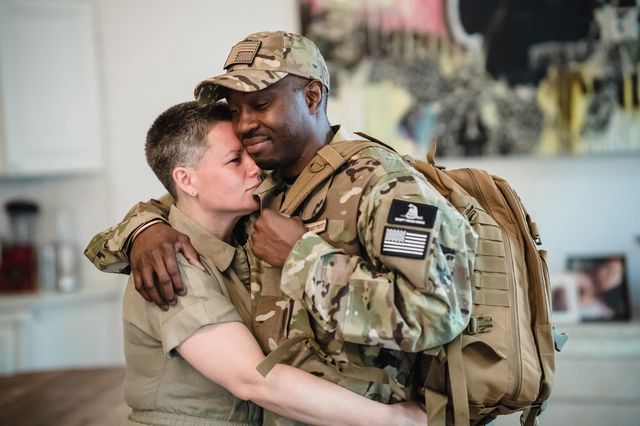
The name of this blog, Alive in the World, comes from the title of Jackson Browne song. It is a song that invites me to ‘live in the world, not inside my head.” To ‘live in the world, not behind some wall.’ It invites me not just to be alive, but to be alive IN THE WORLD. It invites me not just to be in the world, but to be ALIVE IN THE WORLD.
The title of the blog post is also the title of another song by Jackson Browne. As he struggles with how a relationship is unfolding, there are tears.
Here comes those tears again,
Just when I was getting over you.
Just when I was gonna make it through
Another night without missing you.
Tears…they just show up. They come to us. They are not planned or part of our schedule. We don’t make ourselves cry. I am going through the moments of my life, and here come those tears again.
Maybe that’s why there are many ways we are uncomfortable with tears. They seem to come from nowhere.
If tears can show up unannounced, out of nowhere, maybe we are not in control. Maybe there are things happening in our hearts and souls of which we are unaware.
Tears tell us that we don’t know ourselves. We don’t know the fullness and depth of ourselves. That can be scary, and so, our discomfort with tears. And yet, if we let the tears come, we can be open to knowing and embracing all that we are.
The day after Christmas, my sister dropped me off at the airport in Houston. All around me, people were jumping out of cars, grabbing their luggage, giving a quick hug, and scurrying into the terminal. But here and there, other scenes were unfolding. There were couples holding each other in a long embrace. There were families with arms around each other, huddled together in a circle.

They were not eager to let go. My eyes were drawn to them because what they were doing stood out among all the hurrying about. They did not seem to know that this was a time and a place for hurrying and rushing.
Along with the holding, there were tears and smiles. Did you notice that? Smiles AND tears. It was perfectly normal for both of them to be there together. They did not pause and wonder: Hmm, why, exactly, are we crying AND laughing? What does that mean? There was no thought that they shouldn’t be letting others see them this way. It was normal. More than that, it was a right and good and joyful thing.
In my work as a therapist, I see lots of tears. It is normal, almost expected, to shed tears, at some point, in a counseling session. Still, it is not unusual for some clients to say, “I’m sorry.” And then, they go through this process of gathering themselves. They pull themselves together. Interesting language. It suggests that they realize that they are scattered apart in some way, and it is clearly not a right and good and joyful thing.
So often, clients will share the message they have received growing up: Whatever you do, don’t let them see you cry.
There are still ways that the world we live in has a problem with tears. Tears are viewed as a sign of weakness. They are an embarrassment. They are uncomfortable. Maybe that’s why we apologize and try to gather ourselves. We are uncomfortable in the presence of someone crying. I don’t want you to feel that discomfort in the presence of my own tears. Or maybe I don’t want ME to feel uncomfortable in the presence of MY OWN tears.
When my clients say, “I’m sorry” and begin the gathering process, there are different ways I will respond. Often, I will assure them of my presence and just sit with them in silence. While they may not see it this way, for me the silence is in response to a holy moment. The tears are sacred. I may thank them for the gift of their tears. I may speak about the courage they are showing in letting the tears come.
But there are times when it is important for them to be present with the apology, and to consider its meaning. So gently I will ask, “What, exactly, are you sorry for?” I want them to discover that, just like the couples and families at the airport, something right and good is happening. Something with a lovely combination of sadness and joy is unfolding.
They are experiencing a cleansing of the mind. A cleansing of the body. A cleansing of the soul. Something that needed to be let go of has been released. Something that needed to be healed has been touched. Yes, there will be other moments of release and more healing. But for now, this is enough.
You’ve probably heard people say something like this, “Boy, I could use a good cry.” Where does that come from? It’s like we know instinctively that if we let ourselves cry, if we weep honestly, we will feel better, even if our circumstances have not changed at all.
See if you remember a time when you began to cry. Put yourself in those moments as fully as you can.

Picture where you were, what was happening around you. Picture the circumstances that created your tears. Feel what was happening in your body as the tears begin. Be aware of the thoughts your mind was giving you.
Was there some part of you that struggled with the crying? Maybe you didn’t apologize, but somewhere inside there was a discomfort, a sense of not-right-ness. Perhaps your body stiffens a bit. It became rigid. You are gathering yourself. You are holding yourself together. What did your mind tell you that led to this rigidity in your body.
We are cutting ourselves off from something deep and real when we fight the tears. Yes, it might be painful, but it is an honest pain. It is a clean pain. Holding back your tears has its own kind of pain. A dirty pain.
If we guard ourselves from the tears and the pain within them, we may also guard ourselves from moments of joy and the pleasure within those moments. Both of these moments involve letting go. And the struggle with both of these moments is a conflict between our desire to let go and our fear of letting go.
In his book, The Moonstone, Wilkie Collins says, “Your tears come easy, when you’re young, and beginning the world. Your tears come easy, when you’re old, and leaving it.” It is the moments between these two times that we struggle with. We are busy learning, studying, planning. We are busy carving out an identity and a place in the world. We are busy making a living and making a family. All wonderful and amazing adventures. But they can lend themselves to the rigidity of striving to be in control.
Like those who are young and those who are old, may we accept the gift of tears and the wisdom and the healing they offer.
